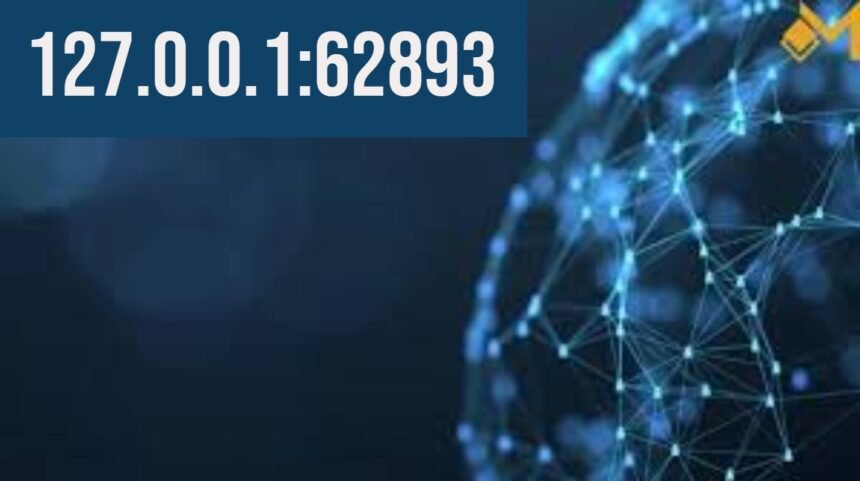Are you navigating the complex world of network configurations and wondering if 127.0.0.1:62893 is your best bet? You’re not alone! This unique address often appears in discussions around localhost connections, but its significance goes beyond just a series of numbers and letters. Whether you’re a developer troubleshooting an application or simply curious about how local networks operate, understanding 127.0.0.1:62893 could open up new possibilities for your projects.
In this blog post, we’re diving deep into what makes 127.0.0.1:62893 tick—its benefits, drawbacks, and whether it truly meets your needs or if there are better alternatives available on the market today! Let’s explore together!
What is 127.0.0.1:62893?
At its core, 127.0.0.1:62893 refers to a specific point in the realm of networking known as localhost. The numbers represent an IP address coupled with a port number, creating a unique entry for communication within your device.
The IP address 127.0.0.1 is often referred to as the “loopback” address. It allows your computer to communicate with itself effectively and efficiently without needing external network connectivity.
The port number 62893 can be used by various applications or services running on your machine. This combination is crucial for developers testing software locally before deployment.
Understanding this setup helps troubleshoot issues during development or run web servers directly from your computer, making it invaluable for programmers and tech enthusiasts alike!
The Benefits of Using 127.0.0.1:62893
Using 127.0.0.1:62893 offers a range of benefits that can enhance your online experiences. First and foremost, it serves as a loopback address, allowing you to test applications locally without exposing them to the wider internet.
Another advantage is increased security. Since this address communicates within your device, you’re less susceptible to external threats or vulnerabilities during testing phases.
Performance is also noteworthy; connections made through 127.0.0.1 tend to be faster because they bypass network latency issues associated with external servers.
Moreover, developers appreciate its utility in debugging applications efficiently. With quick access and immediate feedback loops, troubleshooting becomes significantly easier and more effective.
It fosters experimentation without risk—developers can explore new configurations or features securely on their local machines before deploying them live.
Drawbacks of 127.0.0.1:62893
Using 127.0.0.1:62893 does come with its share of drawbacks that users should consider.
First and foremost, it’s important to realize that this address is localhost-specific. This means it cannot be accessed from other devices on your network or the internet. If you need remote access or collaboration, this could pose a significant limitation.
Another concern involves security vulnerabilities. While local addresses generally offer more safety than public IPs, they’re not entirely immune to threats if proper precautions aren’t taken.
Additionally, depending on your specific use case, 127.0.0.1:62893 may not support all protocols or applications effectively, which can hinder performance and functionality.
Managing services over a non-standard port like 62893 might confuse less tech-savvy users who are accustomed to default ports for various applications, leading to potential connectivity issues and frustration during setup.
How to Determine if 127.0.0.1:62893 is the Right Choice for You?
To decide if 127.0.0.1:62893 fits your needs, start by assessing your specific requirements. Consider the purpose of using this local address and port number in your projects or applications.
Next, evaluate your technical expertise. If you’re comfortable navigating networking configurations, you might find it beneficial. However, beginners may encounter challenges that could hinder their progress.
Analyze the security implications as well. Using a loopback address like 127.0.0.1 generally offers enhanced security since it restricts external access.
Think about potential performance impacts on system resources when utilizing this option for testing or development tasks. Balancing these factors is key to making an informed choice tailored to your situation.
Alternative Options to Consider
When exploring alternatives to 127.0.0.1:62893, consider using a virtual private network (VPN). A VPN can offer enhanced privacy and security while accessing the internet.
Another option is localhost with different ports, such as 8080 or 3000. These are commonly used for web development and server testing.
You might also explore cloud-based platforms like Heroku or AWS. They provide scalable environments that cater to various application needs without relying on local resources.
For those focused on collaboration, tools like ngrok allow you to share your local server securely over the internet without exposing your IP address directly.
Docker containers can streamline your workflow by isolating applications in manageable units, making it easier to test and deploy software across different environments. Each of these choices offers unique features tailored to specific user requirements.
Tips for Using 127.0.0..1:62893 Effectively
When using 127.0.0.1:62893, it’s essential to keep things organized. Maintain a clear directory structure for your projects to avoid confusion.
Utilizing effective tools can enhance your experience. Consider software that integrates well with localhost settings, making debugging easier and more intuitive.
Regularly test your connections and configurations. A quick check can save you hours of troubleshooting later on.
Documentation is crucial too. Keep notes on any changes or customizations you’ve made while working with 127.0.0.1:62893 for future reference.
Don’t overlook security measures even in a local environment. Use firewalls or other protective strategies to safeguard sensitive data from unintended exposure.
Engage with online communities or forums dedicated to localhost development for tips and shared experiences that could provide valuable insights into optimizing your setup.
7
When considering the use of 127.0.0.1:62893, keep a few essential tips in mind for effective usage. First, familiarize yourself with local networking concepts and how they apply to your specific needs. Understanding the fundamental functions of localhost can significantly enhance your experience.
Ensure that you configure any necessary firewall settings to allow seamless communication through this port number. This helps avoid connectivity issues that might arise due to restrictive security measures on your device.
Additionally, consider documenting any configurations or changes you make when using 127.0.0.1:62893 for future reference or troubleshooting purposes.
If you’re testing applications or developing software locally, having a dedicated space on this IP address can streamline processes and improve productivity by isolating test environments from live systems.
Stay updated about best practices related to network security since even internal addresses like 127.0.0.1 are susceptible to vulnerabilities if not correctly managed.
By incorporating these strategies into your workflow with 127.0.0.1:62893, you’ll be well-equipped to utilize its benefits effectively while minimizing potential drawbacks.










